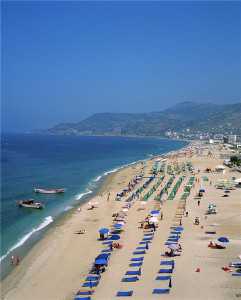Recession May Be Loosening Its Grip, But Some See Worst Ahead for Workers
By Annys Shin and Renae Merle Washington Post Staff Writers
Friday, April 10, 2009; Page A01
The ailing financial and retail sectors showed tentative signs of strength yesterday, an encouraging shift for an economy whose prospects are tied to their recovery.
A resurgence among consumers and banks is a necessary precursor to a turnaround in an economy that has been battered on nearly every front — housing, exports, employment — in recent months. New data yesterday offered at least some hope that the darkest days of the recession could be ending, even if the economy remains fragile.
Ahead of its official earnings report, Wells Fargo, one of the nation’s largest banks, said that it earned record profits from January to March and that its mortgage business was “exceptionally strong.” The San Francisco-based bank, which benefited from having acquired Wachovia late last year and writing down losses then, easily surpassed analysts’ expectations.
Financial markets surged on the news, partly because they have been braced for a dismal first-quarter earnings season. The Dow Jones industrial average jumped 3.14 percent to land at 8083. The Standard & Poor’s 500-stock index and the tech-heavy Nasdaq were up nearly 4 percent after steep losses earlier in the week.
For the fifth week in a row, stocks have ended in positive territory. In the month since the market reached a low in March, stocks have climbed more than 20 percent.
The recession remains severe, and economists stress that the worst for U.S. workers is still to come. Americans are still claiming jobless benefits at record levels, with the number of people receiving unemployment insurance now approaching 6 million. The unemployment rate in March was 8.5 percent, and earlier this week, Federal Reserve Bank of Dallas chief Richard W. Fisher said he thought it could surpass 10 percent by year’s end.
Mounting job losses have kept consumers out of stores, which have reported huge losses since the fall. The International Council of Shopping Centers said yesterday that national retail sales at established stores — a key measure of health in retailing — were down again in March, for the sixth consecutive month year over year.
The decline in sales has been stabilizing, though, in part because lower energy costs have left people with more money to spend. Some retailers yesterday reported better-than-expected results and sounded more positive about the future than they have in months. Wholesale clubs such as Costco and BJ’s turned in particularly strong results, with sales rising 4.6 percent in March excluding the impact of fuel. Even sales at those firms that missed analyst expectations could have been worse, according to analysts.
“The overall tone for March was actually stronger than the reported sales performance,” ICSC chief economist Michael P. Niemira said.
Exports, another fundamental driver of the economy, are also rebounding marginally. The Commerce Department yesterday reported that exports rose in February for the first time since July. That, along with plummeting imports, helped shrink the U.S. trade deficit to a nine-year low.
Demand for U.S. goods remains below what it was before the downturn. Companies have been slashing production to catch up with falling sales at home and overseas, and they appear to be making progress, with wholesale inventories declining. Many companies have more to cut, though. Boeing, for instance, said yesterday that it would reduce production of some planes next year.
Government officials have been counseling patience on the economy, even as they argue that actions they have taken are beginning to pay dividends. Yesterday, President Obama gathered Washington-area homeowners who have benefited from refinancing into more affordable loans at the White House to spotlight his administration’s efforts to bring down mortgage rates.
Officials have also said they have reason for optimism. Lawrence H. Summers, Obama’s top economic adviser, told a packed luncheon in Washington yesterday that while he could not predict when the recession would end, “this sense of free fall . . . will be arrested within the next few months.”
Some of that cautious optimism has begun filtering through to Main Street, according to the Discover U.S. Spending Monitor, a monthly index. Compared with the February survey, twice as many consumers last month reported feeling the economy is getting better, though a majority still feel tough times lie ahead.
Analysts, too, say are increasingly confident that the breathtaking pace of the economy’s decline over the past six months is easing.
“We’re seeing more surprises to the upside,” Standard & Poor’s senior economist Beth Ann Bovino said. “Less weakness is the new strength.”
Staff writers Lori Montgomery and Ylan Q. Mui contributed to this report.






